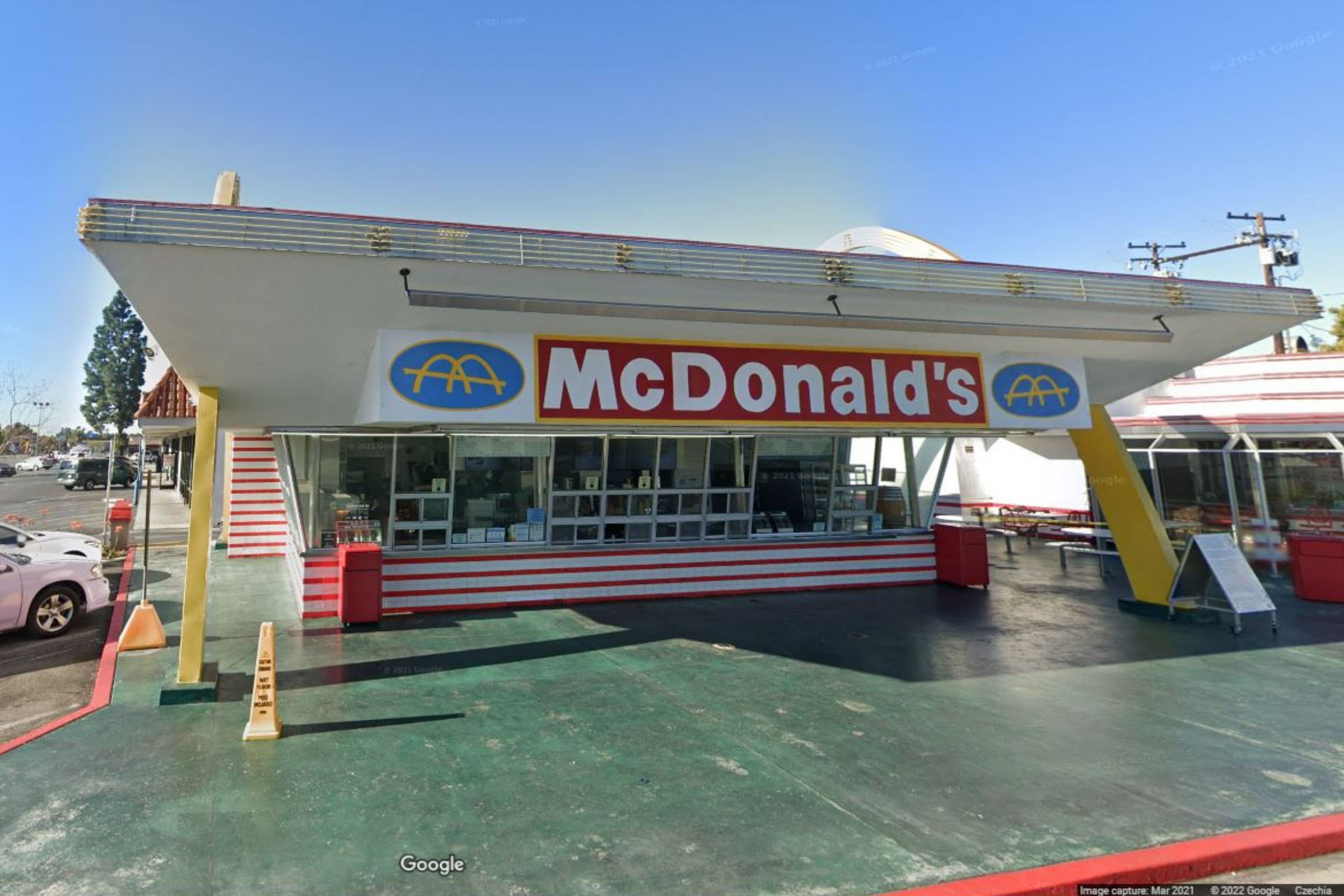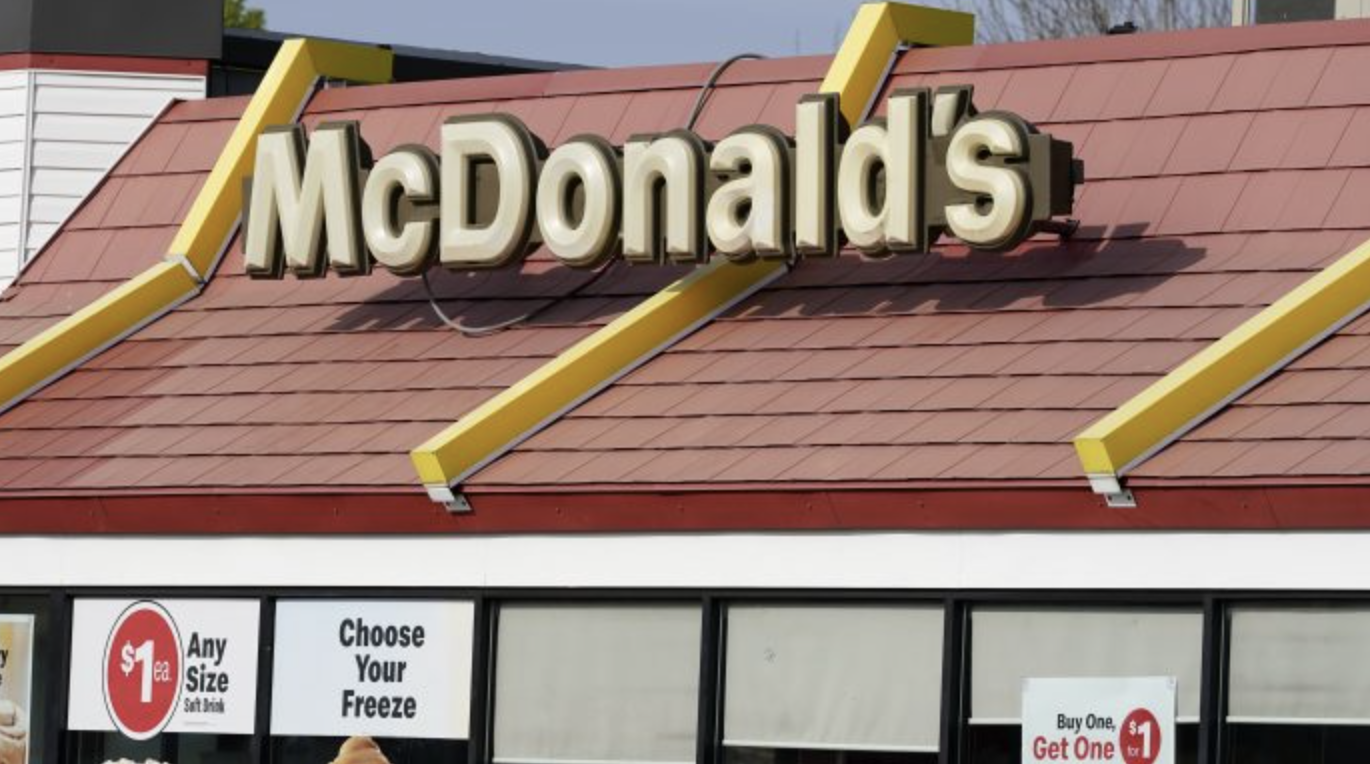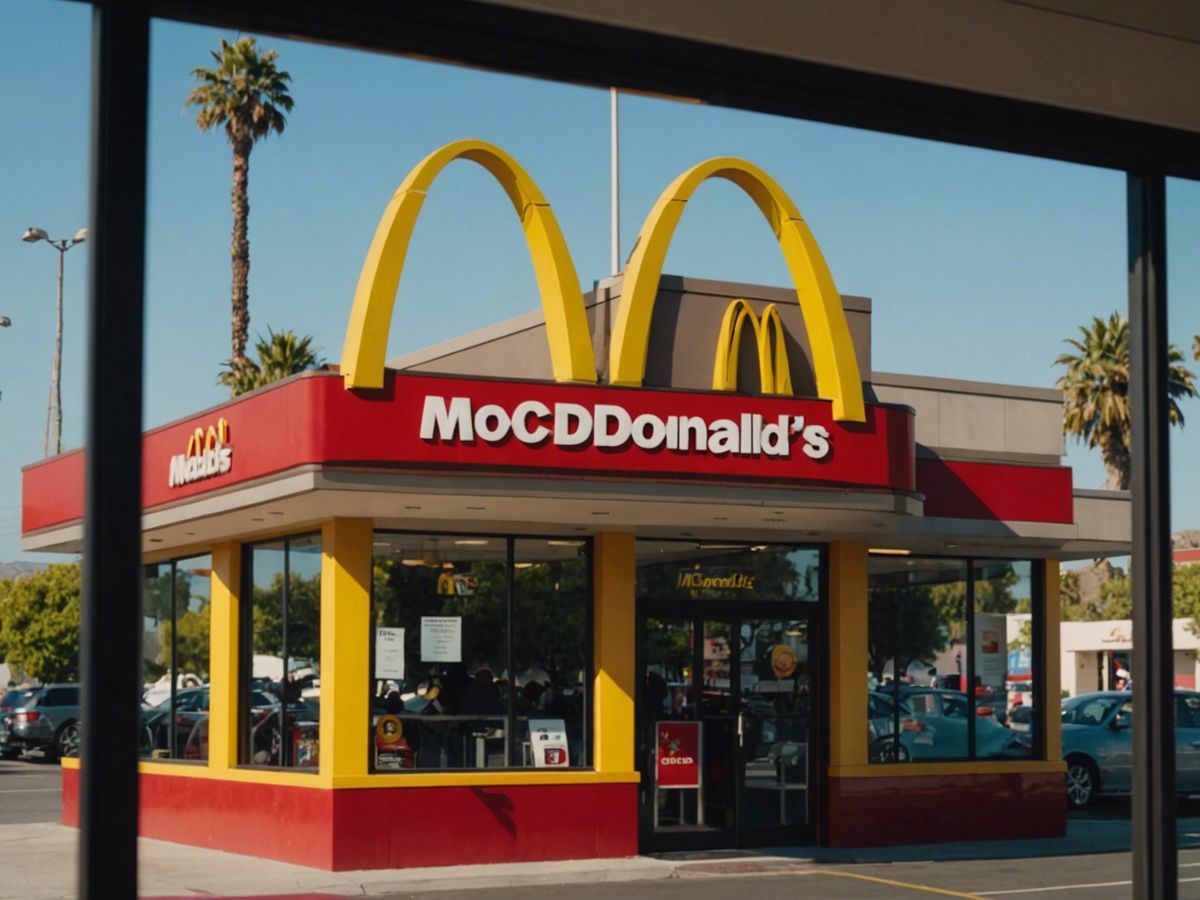McDonald’s LEAVING California: McDonald’s, a global fast-food giant, is considering exiting California due to new economic and legislative challenges. The state’s recent minimum wage law, which mandates a $20 per hour wage for fast food workers, has sparked significant financial concerns among franchise owners. This article delves into the potential impacts of McDonald’s departure on various aspects of the fast food industry.
Key Takeaways
- The new $20 per hour minimum wage law in California is a major factor driving McDonald’s potential exit from the state.
- Franchise owners face substantial financial challenges, with an estimated additional cost of $250,000 per location annually.
- McDonald’s is exploring options like automation and menu price adjustments to mitigate the financial impact.
- The potential exit of McDonald’s from California could lead to significant job losses and affect local economies.
- Public opinion and social media buzz indicate widespread concern and speculation about McDonald’s future in California.
Why McDonald’s May Leave California
Impact of New Minimum Wage Law
California’s $20/hr minimum wage law for fast-food workers raises concerns about reduced hours, increased automation, and operational costs in the industry. Mixed reactions from major chains and industry associations highlight the complexity of the situation. McDonald’s leaving California could be a direct consequence of these financial pressures.
Financial Challenges for Franchise Owners
Franchise owners are facing significant financial challenges due to the increased labor costs. Many are worried about their profit margins and the sustainability of their businesses. The new wage law has made it difficult for them to maintain their current staffing levels without incurring losses.
McDonald’s Response to Legislation
McDonald’s is closely monitoring the situation and exploring various strategies to mitigate the financial impact. This includes lobbying efforts and possibly restructuring operations in California. The company’s future in the state remains uncertain as they adapt to these new economic and legislative challenges.
The new minimum wage law in California presents significant financial challenges for McDonald’s, potentially leading to their exit from the state. As they navigate these changes, the future of McDonald’s operations in California remains uncertain.
Economic Impact on California
Job Losses in the Fast Food Sector
The recent changes in California state law have led to significant job losses in the fast food sector. California loses nearly 10,000 fast-food jobs after the $20 minimum wage was signed into law last fall. This decline represents a major drain to the state’s finances, contributing to a projected budget deficit of $58 billion. The Service Employees International Union (SEIU) supported the minimum wage bill and announced the creation of a new California Fast Food Workers Union.
Effect on Local Economies
The impact of these job losses extends beyond individual workers to local economies. With fewer jobs available, there is less disposable income circulating within communities, which can lead to reduced spending in other sectors. This ripple effect can harm small businesses and reduce overall economic activity in affected areas.
Potential Increase in Automation
As labor costs rise, many fast food chains may turn to automation to offset expenses. This shift could lead to the adoption of self-service kiosks and automated kitchen equipment, reducing the need for human workers. While this may help businesses maintain profitability, it could further exacerbate job losses and economic challenges in the state.
The economic impact of McDonald’s potential exit from California is multifaceted, affecting not just the fast food sector but the broader state economy as well. The combination of job losses, reduced local spending, and increased automation presents a complex challenge for policymakers and business owners alike.

Reactions from Franchise Owners
Concerns Over Profit Margins
Franchise owners are deeply worried about the potential impact on their profit margins. The new minimum wage law could significantly increase operational costs, making it challenging to maintain profitability. Many franchisees argue that the increased labor costs will force them to either raise prices or cut back on staff, both of which could negatively affect their business. This concern is particularly acute for family-owned businesses that operate on thinner margins.
Lobbying Efforts Against the Bill
Franchise owners have not been passive in the face of these challenges. They have actively engaged in lobbying efforts to oppose the new legislation. The International Franchise Association CEO Matt Haller stated that the bill “creates the best possible outcome for workers, local restaurant owners and brands, while protecting the franchise business model in California.” McDonald’s and other franchisee groups have worked tirelessly over the past year to fight these policies and protect Owner/Operators’ ability to make decisions for their businesses locally.
Possible Relocation Plans
Given the financial pressures, some franchise owners are considering relocating their businesses to states with lower operational costs. This is not a decision taken lightly, as it involves significant logistical challenges and potential disruptions to their existing customer base. However, the economic pressures in California are making this option increasingly attractive. Franchise owners are weighing the benefits of staying in a high-cost state against the potential advantages of moving to a more business-friendly environment.
The voices of some can be louder than one, which is why a California-based McDonald’s franchise owner and his industry colleagues are joining together to sound off on the state’s high costs.
- Highlight 1: McDonald’s considers leaving California as 80% of franchise owners express concerns over profit margins.
- Highlight 2: California considers ‘right to disconnect’ law, addressing work culture. Franchise owners are actively lobbying against the new minimum wage bill.
Consumer Reactions and Trends
Public Opinion on McDonald’s Exit
The news of McDonald’s potentially leaving California has sparked a variety of public opinions. Some consumers are concerned about the impact on local jobs, while others see it as a necessary move for the company to maintain profitability. The debate is ongoing, with many Californians expressing their views on social media and in community forums.
Changes in Fast Food Consumption
If McDonald’s exits California, it could lead to significant changes in fast food consumption patterns. Consumers might turn to other fast food chains or local eateries to fill the gap. This shift could also encourage healthier eating habits among some individuals, as they explore alternatives to traditional fast food options.
Social Media Buzz
Social media platforms are buzzing with discussions about McDonald’s potential exit. Hashtags related to the topic are trending, and users are sharing their thoughts and concerns. The online conversation ranges from economic implications to personal anecdotes about McDonald’s. This digital dialogue highlights the widespread interest and varying perspectives on the issue.
Comparative Analysis with Other States
Many states offer a more favorable business environment for fast food chains due to their lower minimum wage laws. This can significantly reduce operational costs, making it easier for franchise owners to maintain profitability. For instance, states like Texas and Florida have minimum wages that are considerably lower than California’s, which can be a major draw for businesses looking to relocate.
McDonald’s has successfully operated in various states with different economic conditions. Since its founding in San Bernardino, California, in 1940, McDonald’s has expanded all over the globe. The adaptability of the brand to different regulatory environments is a testament to its robust business model. However, the challenges faced in high-cost states like California could serve as a learning experience for future operations.
Other fast food chains have also faced similar challenges and have adopted various strategies to cope. Some have opted for increased automation, while others have adjusted their menu prices or restructured their business models. These lessons could be invaluable for McDonald’s as it navigates its potential exit from California.
A population of 39 million is a big customer base to give up on. The running costs are driving a lot of firms out of the state.
Key Takeaways
- States with lower operational costs are more attractive for fast food chains.
- McDonald’s has a history of adapting to different economic conditions.
- Lessons from other fast food chains can provide valuable insights.

Potential Strategies for McDonald’s
Adoption of Automation
McDonald’s is exploring the use of automation to handle rising labor costs. This could include self-service kiosks and automated kitchen equipment. Automation could significantly reduce operational costs, making it a viable option for the company.
Menu Price Adjustments
To offset higher labor costs, McDonald’s might increase menu prices. Joe Erlinger, McDonald’s U.S. President, mentioned that this could lead to a 20% increase in menu prices. While this might help cover expenses, it could also push away customers and reduce sales.
Restructuring Business Model
McDonald’s is considering restructuring its operations in California. This could involve closing less profitable locations or shifting resources to more profitable areas. The company is also looking into moving operations to states with lower costs.
McDonald’s is closely watching the situation and looking for ways to lessen the financial impact. This includes lobbying efforts and possibly restructuring operations in California. The company’s future in the state is uncertain as they adapt to these new economic and legislative challenges.
Historical Context of McDonald’s in California
McDonald’s has had a significant presence in California since it opened its first restaurant in San Bernardino in 1940. Over the decades, the state has become a crucial market for the fast-food giant, contributing substantially to its overall revenue. The brand’s growth in California has been marked by the opening of numerous outlets, making it a staple in the fast food industry.
Throughout its history in California, McDonald’s has faced various challenges, including economic downturns, changing consumer preferences, and increasing competition. One notable challenge was the implementation of stricter health regulations, which required the company to adapt its menu and operations. Despite these hurdles, McDonald’s has managed to maintain a strong foothold in the state.
California holds a special place in McDonald’s history, not just as a major revenue generator but also as a testing ground for new products and innovations. The state’s diverse population and dynamic market conditions have provided McDonald’s with valuable insights that have shaped its global strategies. California’s significance to McDonald’s is evident in its continued investment in the state, even amid economic and legislative challenges.
Legal and Legislative Aspects
Details of the New Wage Law
The new California state law introduces key new laws in 2024 focusing on safety, worker rights, and reproductive rights. This includes regulations on vehicle safety, minimum wage increase, and protection of reproductive rights. The minimum wage increase is a significant part of this legislation, aiming to provide fair pay and better working conditions for workers. However, it has sparked a debate among various stakeholders.
Legal Challenges and Debates
The new wage law has received mixed reactions. Labor unions and worker advocates support the higher wages for offering fair pay and better working conditions. However, franchise owners and business groups argue that the increased costs will force them to raise prices, cut staff, or invest in automation, negatively affecting the business and customers. Some, particularly those who are unfamiliar with the economics of running a business, do not understand this reality, and this includes many California legislators. In 2020, only one out of four Democratic state legislators had any private-sector experience. Legislators take credit for raising wages within the industry and speak of “holding billion-dollar corporations accountable” but never cite the job losses, reduced hours, fewer opportunities, or the higher prices that negatively affect the industry.
Future Legislative Changes
The union then turned to its legislative friends in Sacramento to create a new law in which a regulatory council, which would of course be dominated by union representatives, would regulate wages and working conditions in the fast-food industry, unless of course the restaurant agreed to collective bargaining. The Legislature passed this law, Assembly Bill 1228, in 2022, and Newsom signed it, but it was so onerous that the industry gathered enough signatures to put the law in front of voters in a 2024 ballot.
The fate of California’s labor law enforcement hangs in the balance. California voters will decide on PAGA’s fate in November 2024.
Broader Implications for the Fast Food Industry
Trends in Labor Costs
The new law mandating a $20 per hour minimum wage for fast-food workers starting April 2024 is a significant shift. This increase in labor costs could drive up menu prices by up to 20%. Higher operational costs are expected to be a major challenge for fast-food chains, making it financially unsustainable for some locations. The estimated additional $250,000 annual expense per location due to the new law is a substantial burden.
Economic Pressures on Fast Food Chains
Economic downturns often lead to reduced discretionary spending on fast food. Declining consumer spending can exacerbate the financial challenges posed by increased labor costs. Regulatory challenges, such as the introduction of a council to govern wages and working conditions, add complexity and costs to the industry.
Future of Fast Food in High-Cost States
California’s new law puts fast-food restaurants at a severe disadvantage compared to businesses in other industries within the state. There is no rationale for levying a more severe regulation on a single industry. This could lead to a potential increase in automation as businesses seek to offset higher labor costs. The fast-food industry may need to adapt by exploring new business models or relocating to states with more favorable economic conditions.
The wage hike comes from the Fast Food Accountability and Standards Recovery Act (FAST Act), signed into law in late 2022. This law aims to improve wages and working conditions for fast food workers but has been criticized for being financially difficult to manage.
Media Coverage and Public Perception
Role of News Outlets
News outlets have played a significant role in shaping the narrative around McDonald’s potential exit from California. Major newspapers and TV channels have provided extensive coverage, often highlighting the economic and social implications. Bold headlines and in-depth analyses have kept the public informed and engaged.
Influence of Social Media
Social media platforms have amplified the discussion, with viral posts and trending hashtags. Recently, we have seen viral social posts and poorly sourced reports that McDonald’s has raised prices significantly. This has led to a mix of outrage and support from different segments of the population. The instantaneous nature of social media allows for rapid dissemination of information, but also misinformation.
Public Sentiment Analysis
Public sentiment appears to be divided. Some people are concerned about job losses and economic impact, while others support the move as a stand against rising operational costs. Sentiment analysis tools show a range of emotions from anger to support, reflecting the complex nature of this issue.
The media’s role in shaping public perception cannot be understated. It serves as both an informer and an influencer, guiding public opinion through its coverage and commentary.
Conclusion
The potential exit of McDonald’s from California highlights the significant impact of economic and legislative changes on the fast food industry. The new minimum wage law in California presents substantial financial challenges for McDonald’s, leading to speculation and concern among franchisees and customers alike. As McDonald’s navigates these challenges, the company’s future in the state remains uncertain. This situation underscores the broader economic shifts affecting the fast food industry and raises important questions about the sustainability of current business models in the face of rising operational costs.
Frequently Asked Questions
Why is McDonald’s considering leaving California?
McDonald’s is contemplating exiting California primarily because of the state’s new minimum wage law, which mandates a $20 per hour wage for fast food workers starting April 2024. This hike poses significant financial challenges for franchise owners.
When will the new minimum wage law take effect?
The new minimum wage law in California will take effect starting April 2024.
How much additional cost will the new wage law impose on franchise owners?
Franchise owners estimate an additional $250,000 in yearly costs per location due to the new wage law.
What measures might McDonald’s take to manage the increased costs?
To manage the increased costs, some franchisees might increase menu prices or invest in automation. McDonald’s is also exploring options like moving operations to states with lower costs.
How might the new wage law impact McDonald’s menu prices?
The higher labor costs could lead to a 20% increase in menu prices, which might push away customers and reduce sales.
What has McDonald’s U.S. President said about the situation?
Joe Erlinger, McDonald’s U.S. President, stated that operating in California might become impossible with the new wage law and that the company is exploring options to handle the increased expenses.
Are there any lobbying efforts against the new wage law?
Yes, an independent advocacy group of McDonald’s owners is pushing back against the new wage law, calling it a “devastating financial blow” to its franchisees in the state.
Is McDonald’s definitely leaving California?
As of now, McDonald’s is closely watching the situation and looking for ways to lessen the financial impact. The company’s future in the state is uncertain as they adapt to these new economic and legislative challenges.

